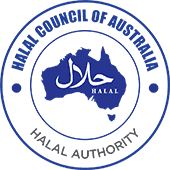What does Halal mean?
Halal is an Arabic term meaning "Lawful or permitted". The opposite of halal is haram which means "Un-lawful or prohibited".
Facts behind the Halal Slaughtering
Studies have shown that halal slaughter protects the consumer from many diseases which are not possible in the conventional methods used in many countries. The way the slaughtering process is carried out is out of significant importance for both human health and safety, as well as the quality of the meat.
The undrained blood that contaminates the meat makes it haram. As a result of chopping the head completely the connection between the brain and the heart is lost hence the heart stop pumping/beating almost instantaneously therefore there is no driving force to push the blood out of the body, leaving the blood stagnates in the veins and arteries which contaminates the meat.
Scientifically, it is proven that blood is one of the best culture mediums to grow bacteria. Consuming meat-contaminated with blood makes humans more vulnerable to infections and joint pains. Joint pains come because of high uric acid levels in blood.
In the halal method of slaughter the head is not chopped off because the blood has to be drained completely before the head is removed. . Instead we cut the main vein (jugular vein) in the neck first. This vein contains venous blood in high pressure and it directly connects to the atrium of the heart without any interference. This method of slaughtering preserves the connection between the brain and the heart which allows neural transmissions to be delivered. This keeps the heart pumping/beating until all the blood is drained off completely from every vein and artery in the body making the meat pure and thus prevents growth and multiplication of harmful micro-organisms.Therefore the halal way of slaughtering is more hygienic as most of the blood containing germs, bacteria, toxins, etc. that are the cause of several diseases are eliminated. Meat slaughtered by the halal way remains fresh for a longer time due to deficiency of blood in the meat as compared to other methods of slaughtering.
These findings were confirmed by a research team from the Hannover University in Germany who examined the halal method of slaughtering, which involved a swift deep incision with a sharp knife on the neck from the jugular veins and carotid arteries of both sides with the trachea and oesophagus while leaving the spinal cord intact compared with Western method stunning using a captive pistol method before slaughtering, using a EEG and ECG (where electrodes were surgically implanted to various parts of the skull) allowing to monitor the brain and heart throughout.
The Halal method of slaughtering showed there was no change in the EEG for the first three seconds indicating that the animal did not feel any pain from the cut itself and the following three seconds were characterised like deep sleep. The EEG recording was zero reading with no pain at all yet at that moment the heart was still beating and the body was convulsing vigorously as a reflex reaction of the spinal cord. It is this phase which is unpleasant to the onlookers, who are falsely convinced that the animal suffers whilst the brain does not longer records any message.
Using the Western method of slaughtering the animals were apparently unconscious after stunning and appeared much more peaceful for the onlookers. However the EEG readings indicated severe pain immediately after stunning even though there were no unsightly convulsions. First there was stoppage of the heart whilst the animal still feels pain. With the halal method the animal ceased to feel any pain due to the brain starvation of blood and oxygen (brain death).
In conclusion, it is safe to say that while some people might feel that halal could be threatening to their way of life, it is actually designed and executed in a way that is meant to be the most hygienic for the people consuming the meat and the least painful for the animal.
Our mission for Halal Council of Australia is to ensure a proficient management and importance in sustaining
